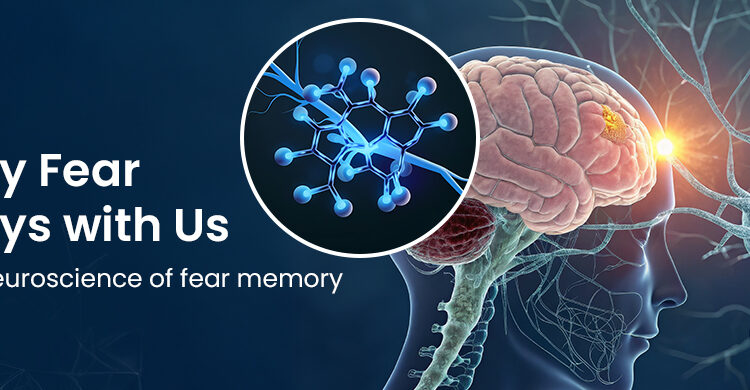As physicians, two of the traits that allow us and other professionals to excel at our work also put us at danger of burnout. That includes neuroticism and perfectionism.
Of course, these qualities are advantageous to us as physicians. Wouldn’t you want your surgeon to be a little neurotic and perfectionistic when removing your appendix, so that they can make sure the incision is cut precisely, that no other organs are inadvertently nicked, and that no blood vessels are left leaking when your abdomen is closed?
However, these same traits that support excellence in our profession also increase our risk of burnout. We experience anxiety because things cannot be perfect in the real world. There are many patient outcomes that are beyond our control. We have no control over the growing disrespect for our profession as every patient appears to assume that because they went to Google School of Medicine, they are compelled to tell us how to do our jobs. When you add in the ever-increasing tsunami of paperwork that eats up what used to be family and recreational time, as well as a dwindling sense of purpose as our professional associations insist on replacing our critical thinking with algorithmic charts, you can see why the profession’s foundation is in such jeopardy.
Our need to control what we have no control over is an obstacle to our happiness.
Have you ever noticed how, regardless of what they are going through, the happiest patients we encounter are also the most thankful?
Behold the antidote known for centuries and proven to be effective through multiple studies. Gratitude is the antidote. Gratitude is the joy we experience because we have everything we want. It is the absence of wanting.
Gratitude decreases neuroticism because it decreases our need to control things which we have no control over. This is because gratitude allows us to appreciate what we already have while accepting things for which we have no control over.
On the contrary, have you ever observed that the most wretched patients we see also have the greatest sense of entitlement? To understand gratitude, we can look at its antithesis: entitlement. Entitlement is the core of narcissism. Entitlement grows from self-absorption. It is the result of lack of evolution as a contributing human being in a post stone-age society.
Case Study: Mrs. LC
Mrs. LC suffered from gradually deteriorating multiple sclerosis for over twenty years. Despite that, she had a smile that could light up the room whenever she came in to visit me. One day, I asked her how she
managed to maintain such an upbeat disposition despite experiencing such a debilitating disease. Here is what she said:
“Doctor, every morning when I wake up, I open my eyes and look around my room. Then I tell myself: Wow, I can open my eyes! I am alive! What a wonderful day!”
It was once said that there are two ways to get everything you want in life. You can struggle to obtain everything you want, or, you can want everything you already have.
Myths about gratitude.
Myth #1: Gratitude makes us complacent.
Because gratitude is invigorating, research suggests that grateful people are more successful at achieving their goals. It boosts alertness while lowering complacency.
Myth #2: Gratitude means we must deny our negative emotions.
According to research, gratitude permits us to engage in negative emotions rather than avoid them. This is not Pollyanna-style thinking. It makes us happier by elevating our pleasant emotions.
Medically, gratitude:
- improves our sleep
- decreases our blood pressure
- decreases inflammation
- increases neuro hormones such as oxytocin and dopamine
- improves immune system
- reduces depression
Other findings on grateful people:
- People with higher levels of gratitude are less bothered by their symptoms of pain, leading to less distress.
- They are better able to perceive situations in a positive light, leading to reduction in stress.
- People with higher levels of gratitude are better at forgiving. We may let go of unpleasant emotions like wrath and regret when we forgive. It permits us to cut down on ruminating. Depression and anxiety are exacerbated by ruminating.
- They feel more joy and pleasure.
- They exercise more and take have better self-care.
- They are less lonely and are liked more by others.
- They have fewer toxic emotions such as resentment and envy because these emotions are incompatible with gratitude.
Pitfalls to Avoid in Cultivating Gratitude
- Expecting gratitude in return. When we expect others to appreciate what we have done, this becomes entitlement, which is incompatible with gratitude.
- Using gratitude to condone injustice. People should not be encouraged to feel grateful and so tolerate wrongdoings, such as: “You shouldn’t be complaining about your boss’s mistreatment because you should just be glad you have a job.”
Six Ways to Cultivate Gratitude
- Name three things you feel grateful for.
Choose a time, whether it is when you first wake up or just before going to sleep. Name three things for which you are grateful. Make it different everyday.
- Thinking paradoxically.
Imagine what life would be like without the person or pet you love in your life. This reduces our tendency to take them for granted.
- Another paradoxical exercise is to give up something you took for granted. Researchers Jordi Quoidbach and Elizabeth Dunn found that volunteers who were given a piece of chocolate after refraining for a week were happier than those who were permitted to gorge on it the week before.
- When considering a negative occurrence in your life, consider what good aspects you can find. This is not about denying difficult emotions. Instead, it is about gaining agency and harnessing gratitude to explore what opportunities are available. This lessens the feeling of helplessness.
- Develop appreciation of people rather than things. This increases our meaningful connections, which is a huge determinant of our health.
- Instead of thinking what went wrong, thing about what went right.
Gratitude is a skill we can develop. Just like any other skills, it grows with practice. By following the suggestions above, we are watering the seeds of gratitude, which will blossom into a superpower, giving us the resiliency to find meaning in our work again. Gratitude allows us to appreciate the good that exists rather than being victims of our circumstances, which we might miss if we don’t look for it. The experience of gratitude minimizes toxic emotions like anger, resentment, and hopelessness, all of which contribute to burnout.
Here’s the best part. Gratitude is contagious. It spreads like the aroma of freshly baked apple pies, with anybody we express thanks being more inclined to express gratitude to others, and so on, and so on.

MDForLives is a global healthcare intelligence platform where real-world perspectives are transformed into validated insights. We bring together diverse healthcare experiences to discover, share, and shape the future of healthcare through data-backed understanding.






